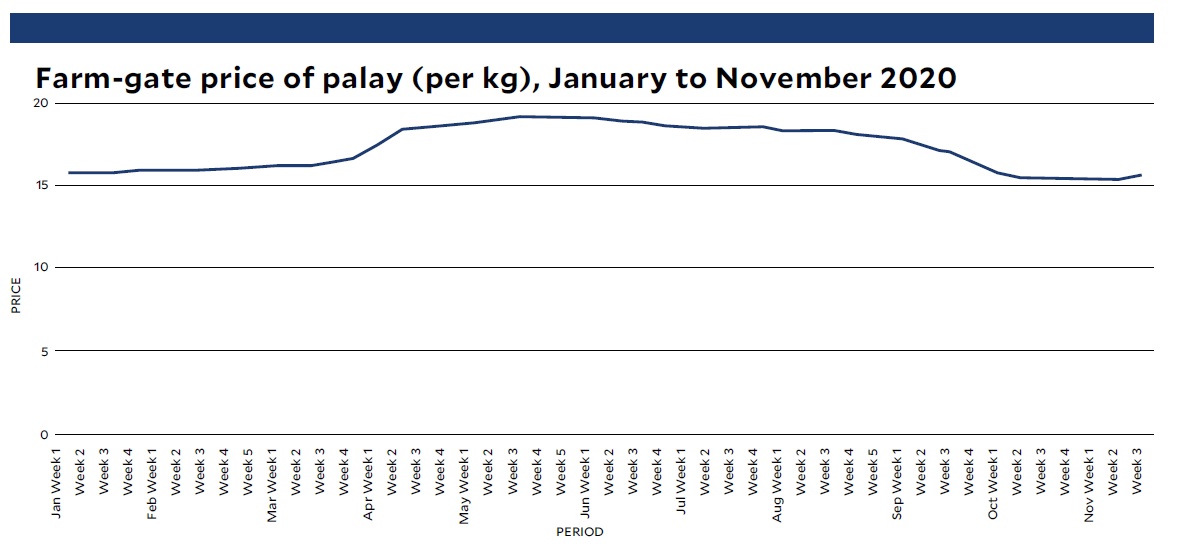Palay price slumps to low of P 10/kilo

The three strongest typhoons that hit the country this year—Typhoons “Quinta” (international name: Molave), “Rolly” (Goni) and “Ulysses” (Vamc0)—drowned farmlands and sloshed tons of crops through the mud. Farmers said the produce that they were able to save were already of poor quality that could not command decent prices. Hence, the sudden dive in palay rates.
Based on PSA’s latest price monitoring report, the lowest quotation recorded during the third week of November was P10.71 a kilo in Quezon province and Cavite.
Both of these provinces were simultaneously hit by natural calamities. In other typhoon-wracked regions like Bicol, quotations hovered between P11 and P18 a kilo. In Cagayan, rates were at a low of P11 a kilo and a high of P19 a kilo.
Prices for palay have been on the downtrend in recent months. In October, the average farm-gate price for the staple hit the P15-a-kilo mark. The latest rates averaged P15.63 a kilo.
Of the provinces covered by the reports, 13 recorded a low price of P15 a kilo, 12 registered a low rate of P14 a kilo while 10 provinces were selling at a low of P13 a kilo.
Article continues after this advertisementFour provinces recorded a low of P12 a kilo while three provinces registered P11 a kilo.
Article continues after this advertisementThese quotations represented the lowest prices in the provinces, different from the average farm-gate price they received.
ExplanationOnly three provinces were able to record a farm-gate price of P20 a kilo and up. These were Nueva Ecija (P22), Palawan (P20) and Zamboanga Sibugay (P2o).
Meanwhile, rice prices have stabilized at P41 a kilo for well-milled rice and P37 a kilo for regular milled rice. Prices of rice are dictated by the availability and demand for local and imported rice.
Noel Reyes, spokesperson for the Department of Agriculture (DA), in a separate interview with the Inquirer, argued that rates provided by the PSA use a different baseline, which might explain the low prices.
He said the DA was set to meet with PSA to agree on a standard. Former Agriculture Secretary Emmanuel Piñol also had similar qualms with the government’s statisticians. INQ